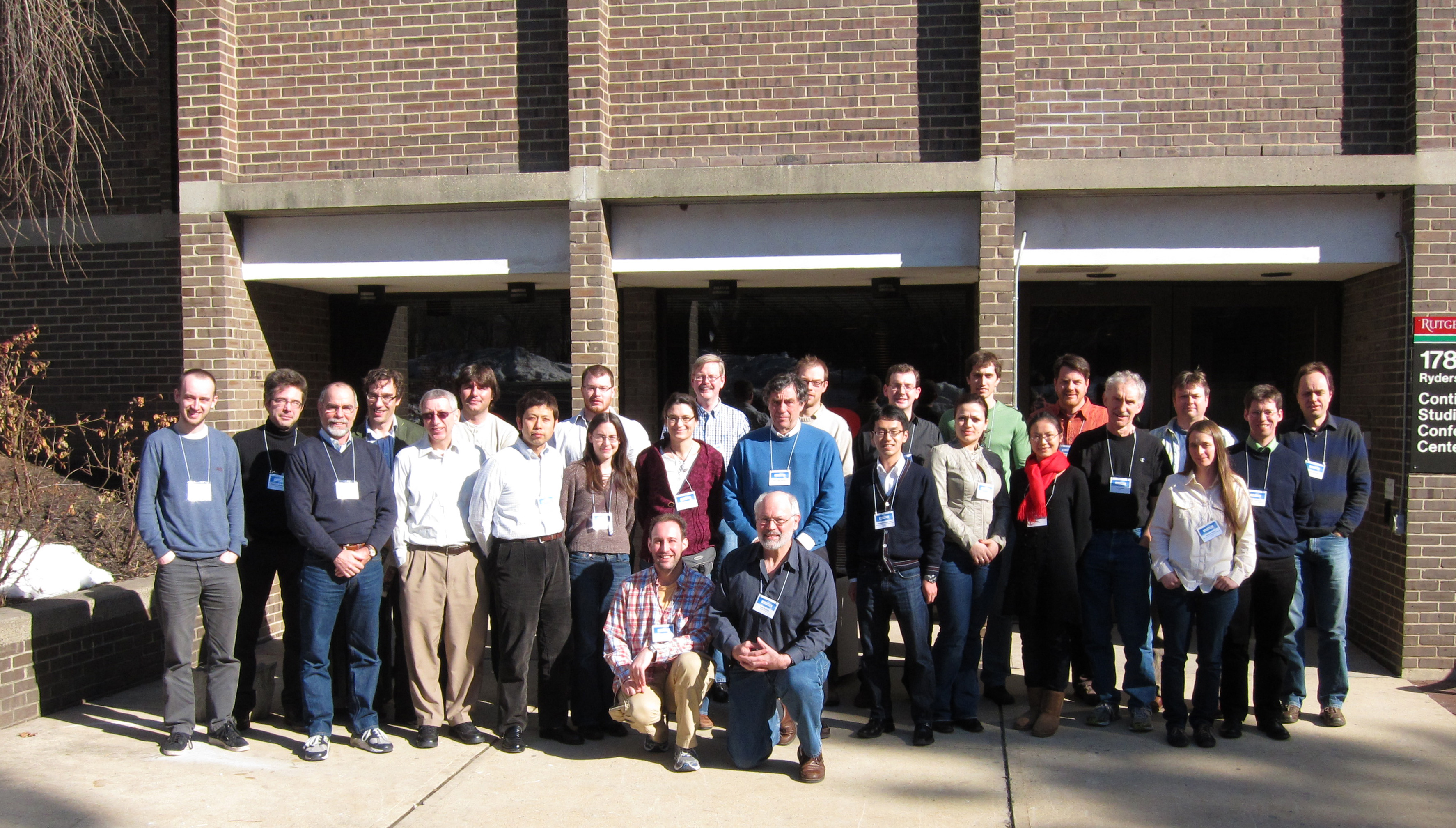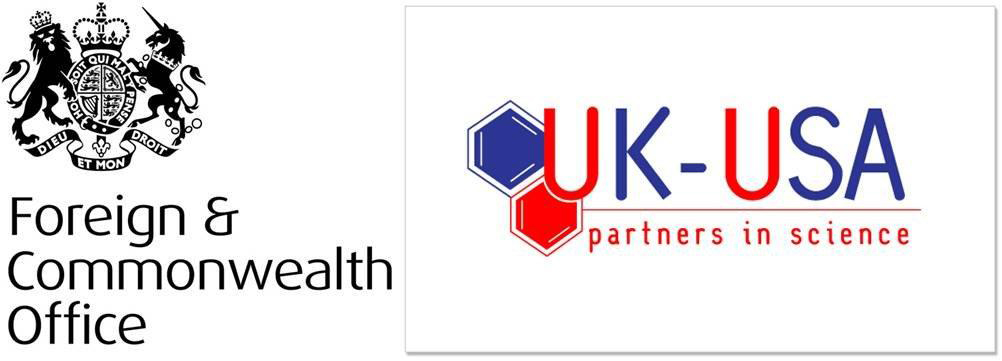GeoMIP Stratospheric Aerosol Geoengineering Workshop
Continuing Studies Conference Center
Rutgers University, New Brunswick, New Jersey, USA
Thursday, February 10 through Saturday, February 12, 2011
 Peter Irvine, Stephan Fueglistaler, Karl Taylor, Piers Forster, Ronald Stouffer, Jean-Paul Vernier, Michio Kawamiya, Simon Driscoll, Kathryn Emmerson, Ben Kravitz (kneeling), Ulrike Niemeier, Peter Braesicke, Alan Robock (kneeling), Jean-Loup Bertaux, Olivier Boucher, Masahiro Sugiyama, Graham Mann, Diana Boukaram, Alexander Chernokulsky, Lili Xia, Michael Mills, Phil Rasch, Matthew Watson, Simone Tilmes, Mark Lawrence, Hauke Schmidt
| |
Workshop Agenda
Workshop Summary (Published in Eos)
Scientific Organizers: Alan Robock (Rutgers University) and Olivier Boucher (Laboratoire de Meteorologie Dynamique)
Local Organizers: Alan Robock and Ben Kravitz (Pacific Northwest National Laboratory)
Geoengineering has been suggested as a way to control the Earth's climate to address global warming. A particular class of suggested geoengineering techniques is known as "solar radiation management," which consists of artificially decreasing the amount of solar radiation absorbed by the climate system in order to offset global warming by greenhouse gases. Geoengineering is a very new field of research and there remain huge uncertainties on its feasibility, benefits, risks, and costs. While all serious scientists advocate mitigation and adaptation to address anthropogenic climate change, some have suggested that geoengineering may become an option to consider on a temporary basis to deal with catastrophic impacts of warming. As the idea of geoengineering is gaining momentum, it is critical to conduct unbiased policy-relevant research on the subject in an open and transparent international framework.
We have organised a three-day workshop of about 30 scientists working on the "stratospheric aerosol" geoengineering scheme. The workshop will focus on the first results of the GeoMIP project that intercompares the response of climate models to a common set of idealised solar radiation management schemes. GeoMIP has been approved as a "CMIP Coordinated Experiment" as part of the CMIP5 organized set of experiments in preparation for AR5. Output is being accepted at PCMDI as one of the sets of model outputs from the set of CMIP5 experiments being done in preparation for AR5. The proposal for GeoMIP can be downloaded here, and is now being revised in response to reviewers comments. The third day of the workshop will be devoted to a more general discussion on geoengineering and the need for further intercomparison studies.
Objectives of the Workshop:
- Discuss the first results of the GeoMIP intercomparison project
- Plan joint publications on the geoengineering intercomparison study
- Discuss possible contributions to the IPCC Fifth Assessment Report
- Discuss the future of the GeoMIP project
This workshop is sponsored by the United Kingdom embassy in the United States. Science & Innovation Team, British Consulate General-HoustonThe Science & Innovation Team in Houston is part of the United Kingdom's Foreign and Commonwealth Office's network of global science attachés. They work to facilitate collaborations between science and innovation providers and users in the United Kingdom and the United States in industry, academia and research institutions. In addition, they keep UK policymakers fully informed about research and policy developments in the US, as well as promote the UK as a world-class leader in science and innovation. The S&I Network also reports on policy developments, strategy and emerging priorities and facilitates international negotiations and collaborations in areas such as climate change, stem cell research, nanotechnology and low carbon technologies. For more information, please contact S&I Consul May Akrawi at may.akrawi@fco.gov.uk or Science Officer Catherine Santamaria at Catherine.santamaria@fco.gov.uk. For news of UK science and policy developments and joint US-UK funding calls, please visit us on: http://ukinusa.fco.gov.uk/science and follow us on Twitter: BriSciGal |